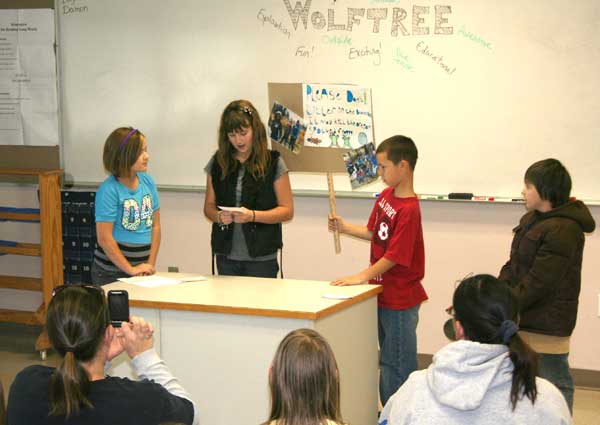 Back in 1949, Oxford University Press published a remarkable book that changed the way conservation education is being taught, and in doing so, left behind a solid base for everyone wanting to see the conservation of our natural resources. That book, A Sand County Almanac, was written by Aldo Leopold, a man who many consider to be the father of wildlife management and conservation education.
Back in 1949, Oxford University Press published a remarkable book that changed the way conservation education is being taught, and in doing so, left behind a solid base for everyone wanting to see the conservation of our natural resources. That book, A Sand County Almanac, was written by Aldo Leopold, a man who many consider to be the father of wildlife management and conservation education.
Leopold's legacy is found in his statement regarding habitat management, based on ecological interactions and education: "This science of relationships is called ecology, but what we call it matters nothing. The question is, does the educated citizen know he is only a cog in the ecological mechanism? That if he will work with that mechanism his mental health and his material wealth can expand indefinitely? But that if he refuses to work with it, it will ultimately grind him to dust? If education does not teach us these things, then what is education for?"
Last week, Anna Bajorek's fifth-grade students gave a classroom presentation on what they learned when Wolftree, a nonprofit ecology education organization, took students to Prairie Creek out behind the school and put Leopold's philosophy to work in the area of conservation education. (See the Nov. 3 issue of the Source)
Five groups of students took their turn explaining to the many parents in the classroom, as well as their peers, what they learned from the Wolftree experience. The first group thanked everyone at the end of their presentation after the applause quieted down and turned to leave the front of the room, but Wolftree's Rachel Manzo got to her feet and stopped them.
She then went on to explain, like scientists the world over who present their work, there comes that moment after the presentation that the floor is opened for questions. It was so gratifying to see those young La Pine Elementary scientists take center stage again and open their work for inspection by the many parents and peers. After that, each group who presented their findings and feelings repeated the question-and-answer phase of the program.
The "Beaver Believers" added an entertaining twist to their presentation: at the end they sang a little ditty, "Don't Litter," composed by Rachel O'Ryan and Cheyenne Ethan:
Don't litter, think about the critters;
No! Don't litter, think about the critters.
No! Don't litter, think about the critters and save a life today!
As all the presentations ended, resounding applause came from the parents and the students for all the work they accomplished, then, in the silence that followed, the students all said, "Thank you Wolftree!"
All in all, the grant that Wolftree received to conduct the outdoor school exercise with Bajorek's students was money well spent. If that spirit of discovery and the excitement of learning can be kept alive in those curious fifth graders as they advance through the educational system, they will be the scientists we will require to maintain and expand conservation of our natural resources tomorrow.
















